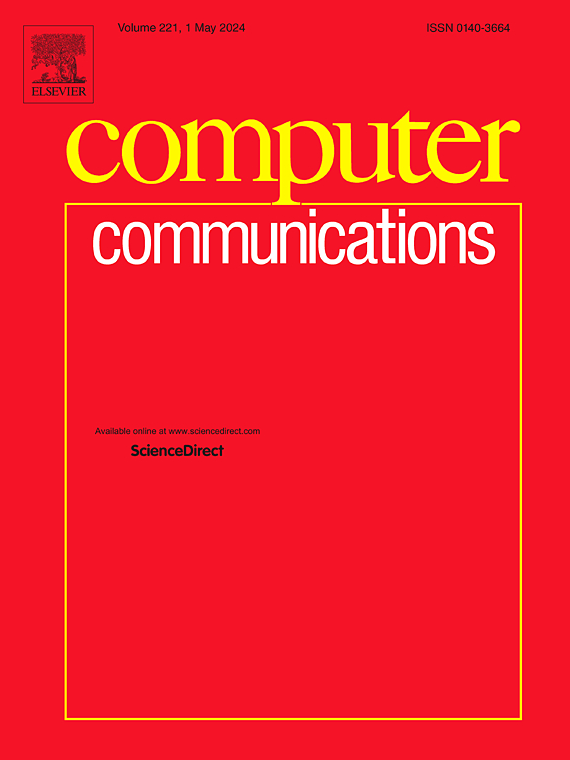A two-stage federated learning method for personalization via selective collaboration
IF 4.5
3区 计算机科学
Q1 COMPUTER SCIENCE, INFORMATION SYSTEMS
引用次数: 0
Abstract
As an emerging distributed learning method, Federated learning has received much attention recently. Traditional federated learning aims to train a global model on a decentralized dataset, but in the case of uneven data distribution, a single global model may not be well adapted to each client, and even the local training performance of some clients may be superior to the global model. Under this background, clustering resemblance clients into the same group is a common approach. However, there is still some heterogeneity of clients within the same group, and general clustering methods usually assume that clients belong to a specific class only, but in real-world scenarios, it is difficult to accurately categorize clients into one class due to the complexity of data distribution. To solve these problems, we propose a two-stage federated learning method for personalization via selective collaboration (FedSC). Different from previous clustering methods, we focus on how to independently exclude other clients with significant distributional differences for each client and break the restriction that clients can only belong to one category. We tend to select collaborators for each client who are more conducive to achieving local mission goals and build a collaborative group for them independently, and every client engages in a federated learning process only with group members to avoid negative knowledge transfer. Furthermore, FedSC performs finer-grained processing within each group, using an adaptive hierarchical fusion strategy of group and local models instead of the traditional approach’s scheme of directly overriding local models. Extensive experiments show that our proposed method considerably increases model performance under different heterogeneity scenarios.
通过选择性协作实现个性化的两阶段联合学习方法
联邦学习作为一种新兴的分布式学习方法,近年来受到了广泛的关注。传统的联邦学习旨在在分散的数据集上训练全局模型,但在数据分布不均匀的情况下,单个全局模型可能不能很好地适应每个客户端,甚至某些客户端的局部训练性能可能优于全局模型。在此背景下,将相似客户端聚类到同一组是一种常用的方法。但是,同一组内的客户端仍然存在一定的异质性,一般的聚类方法通常假设客户端只属于特定的类,但在实际场景中,由于数据分布的复杂性,很难将客户端准确地分类到一个类中。为了解决这些问题,我们提出了一种基于选择性协作(FedSC)的个性化两阶段联邦学习方法。与以往的聚类方法不同,我们关注的是如何独立地排除每个客户端分布差异显著的其他客户端,打破客户端只能属于一个类别的限制。我们倾向于为每个客户选择更有利于实现当地任务目标的合作者,并为他们独立建立一个协作小组,每个客户只与小组成员进行联合学习过程,以避免负知识转移。此外,FedSC在每个组内执行更细粒度的处理,使用组和局部模型的自适应分层融合策略,而不是传统方法直接覆盖局部模型的方案。大量的实验表明,我们提出的方法在不同的异构场景下显著提高了模型的性能。
本文章由计算机程序翻译,如有差异,请以英文原文为准。
求助全文
约1分钟内获得全文
求助全文
来源期刊

Computer Communications
工程技术-电信学
CiteScore
14.10
自引率
5.00%
发文量
397
审稿时长
66 days
期刊介绍:
Computer and Communications networks are key infrastructures of the information society with high socio-economic value as they contribute to the correct operations of many critical services (from healthcare to finance and transportation). Internet is the core of today''s computer-communication infrastructures. This has transformed the Internet, from a robust network for data transfer between computers, to a global, content-rich, communication and information system where contents are increasingly generated by the users, and distributed according to human social relations. Next-generation network technologies, architectures and protocols are therefore required to overcome the limitations of the legacy Internet and add new capabilities and services. The future Internet should be ubiquitous, secure, resilient, and closer to human communication paradigms.
Computer Communications is a peer-reviewed international journal that publishes high-quality scientific articles (both theory and practice) and survey papers covering all aspects of future computer communication networks (on all layers, except the physical layer), with a special attention to the evolution of the Internet architecture, protocols, services, and applications.
 求助内容:
求助内容: 应助结果提醒方式:
应助结果提醒方式:


